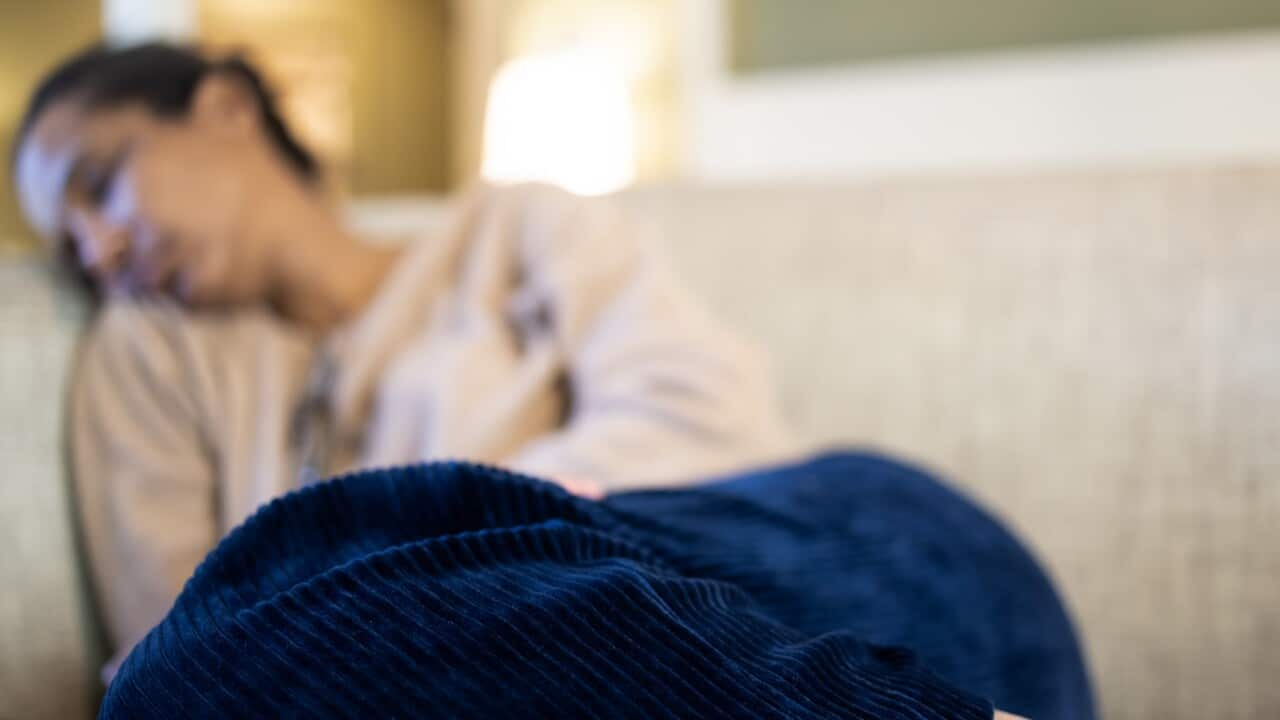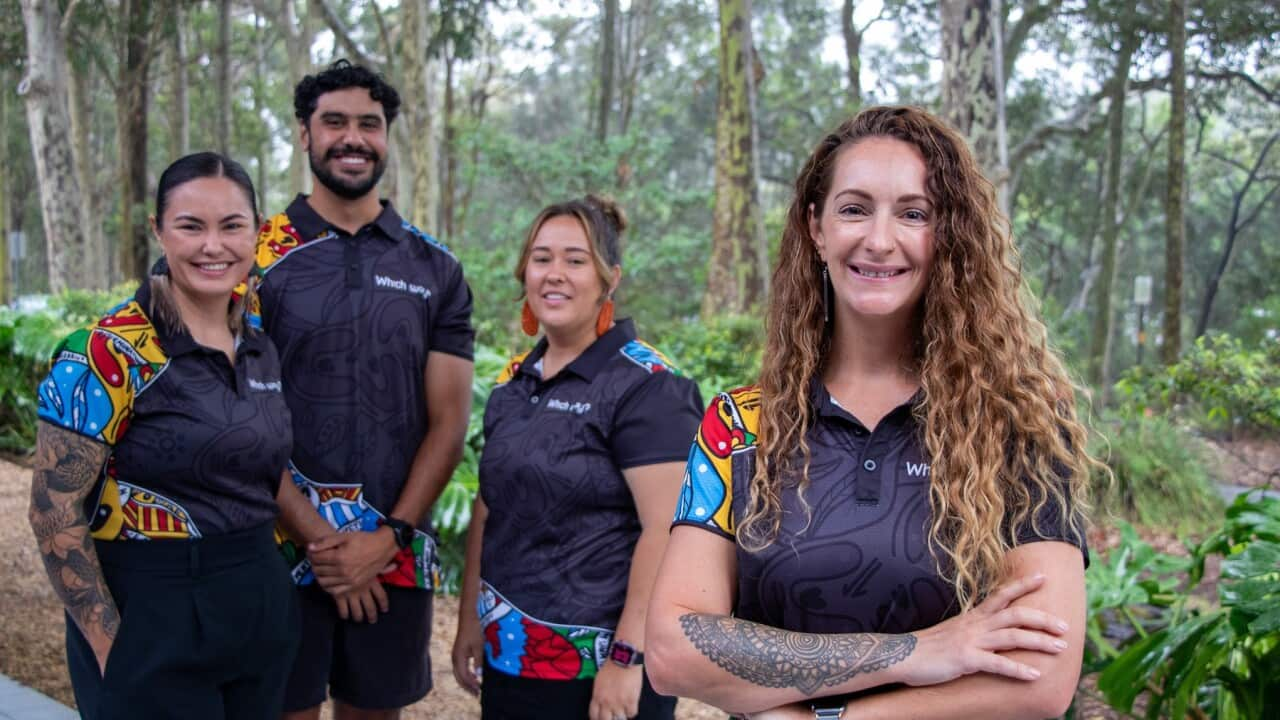TRANSCRIPT
Martine van Boeijen is a vet with her own business. But - she hasn't been able to work for about 18 months.
In April 2022, Martine was infected with COVID-19.
Then, in May this year, she got it again.
"Just in the couple of months before getting reinfected, I had just started to creep back to work, like, you know, for 3 or 4 hours a week. I know it sounds so ridiculous - I used to work 60, 70 hours a week before I got sick. And then I got reinfected. And so I've been back to pretty much being housebound. I'm just trying to start to creep back to work for, again, an hour or two a week. It's crazy. I never thought I'd be this person who can barely leave the house. It's insane."
Martine says her experience working in a scientific field taught her to look for evidence-based research. So when she realised that her COVID symptoms weren't going away after 12 weeks, she studied up on the possibility she had long COVID.
“This wasn't, at that point in time, anything that was formally acknowledged by any of my doctors, and it wasn't until I was it really until I was probably more 5, 6 months down the trail of being completely housebound - slash - bed-couch-bound that they would actually acknowledge that it was long COVID."
New research from R-M-I-T University indicates Australia is lagging behind some other countries when it comes to detecting and managing the condition. In Australia, a person is considered to have long COVID if they experience symptoms for longer than 12 weeks after their initial infection.
Associate Professor of Health and Medical Sciences at R-M-I-T, Zhen Zheng, worked on the new paper. She says Australia is following the World Health Organisation's definition of long COVID. However she and her colleagues found major gaps between recommendations and what patients experience.
In Australia, the COVID-19 pandemic has resulted in more than 11 million confirmed cases since the outbreak began in 2020. But according to Professor Zheng, public awareness is still a major barrier.
"A lot of people don't know about long COVID. I've seen people who developed long COVID (and) have no idea what's happening. So they're people who previously could run 5 kilometres, 20 kilometres a day, they now could barely could walk to the supermarket. And they don't know what is happening, that kind of situation. So I think we need a bit better education of the public, that actually people who have COVID-19 could develop into long COVID. About one in 10 of them could develop into long COVID."
If those symptoms persist for more than four weeks, they should see their doctor to get a checkup. If the symptoms endure beyond eight weeks, Professor Zheng says people should get a referral to attend a long COVID specialist clinic.
She says the confusion over what long COVID looks like and how it's defined is not only a problem for the general public.
"Healthcare practitioners themselves have very little knowledge about long COVID, simply because it's a very evolving area. So there's also confusion about the definition of long COVID, as I described. Royal Australian College of G-Ps sent a message out saying every G-P should continued professional development [[CPD]]about long COVID. And I think that's terrific. I think all other allied health practitioners should have (the) same kind of CDP, so that when people come to their clinic they can early identify those patients."
Most information that is available is in English, and Professor Zheng says it needs to better reflect Australia's diverse multilingual communities. In fact, that information needs to be translated not only into other languages but adapted into different cultures. Professor Zheng says self-care is crucial to recovery.
But recommendations like exercise, regulating mental health, and eating anti-inflammatory diets might look different in different communities.
"For instance, Qigong ((chi-gung)) might be more appropriate for people from Asian countries, right. We need to look into different kinds of culturally appropriate diets, to reduce inflammation. So Mediterranean diets are more for people in the Greek or Italian backgrounds. And people from Middle Eastern (backgrounds) would have different kinds of anti-inflammatory diets."
The CEO of Emerge Australia, Anne Wilson, is also frustrated that Australia's lagging behind. Her organisation supports people with long COVID, as well as Myalgic Encephalomyelitis Chronic Fatigue Syndrome - also known as M-E-C-F-S, or simply Chronic Fatigue.
Ms Wilson says the conditions must be researched together.
"Both M-E-C-F-S and long COVID are post-infection diseases. And Emerge Australia has been arguing for about 18 months now, that Australia needs a national, post-infection disease strategy. We were very pleased recently to discover that Yale, in the United States has now set up an entire division of post-infection disease to look at M-E-C-F-S, and long COVID, and other diseases that fall into the post-infection disease category."
Ms Wilson says that too often, patients who present with symptoms such as fatigue, trembling, or brain fog are often misdiagnosed with anxiety.
Multicultural communities face even greater challenges.
"For those people who do have English as their first language, there are huge barriers to receiving appropriate care. If you add people from culturally and linguistically diverse groups to that, including our First Nations people, you have a very grim picture. Very grim. And it would be very dependent on the knowledge of the clinician to whom they go."
Martine agrees the initial contact with the health system is critical.
"Finding a G-P that's an advocate for you, that's keen on being educated I think is key. And so if that's - if the government wants to prioritise where to distribute the funding, I mean, the GPs are the first people that are seeing these patients and so having them having the knowledge base to manage them I think is critical."
Martine says she finds it difficult in retrospect to consider how long it took to get a diagnosis, and is still struggling physically and financially. But, she says, finding a community via the Facebook group "Australian Long COVID Community" has helped her feel "human".
For people researching long COVID and those living with it, the message is clear - to keep talking about, and deepening our understanding, of this debilitating condition.













